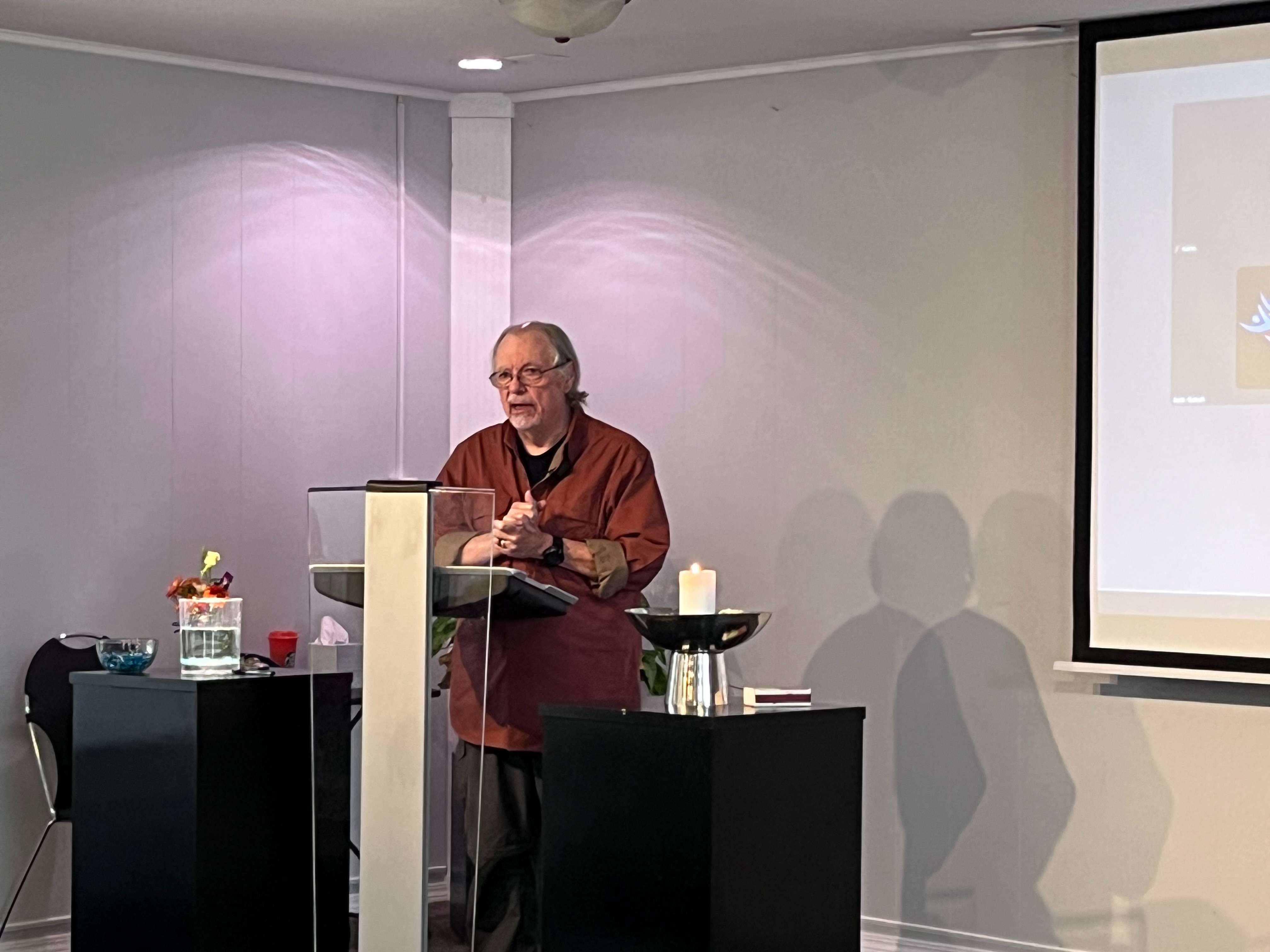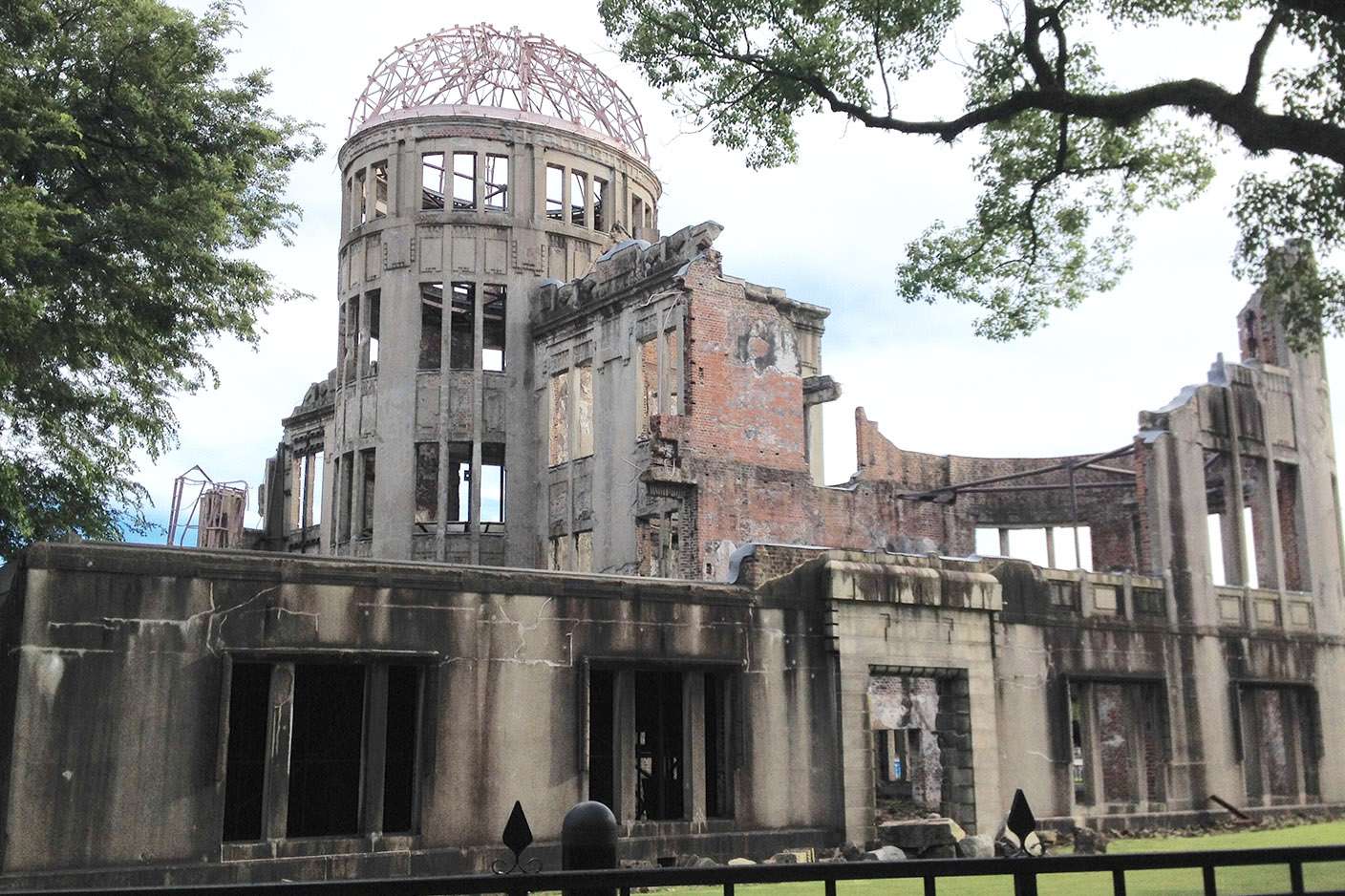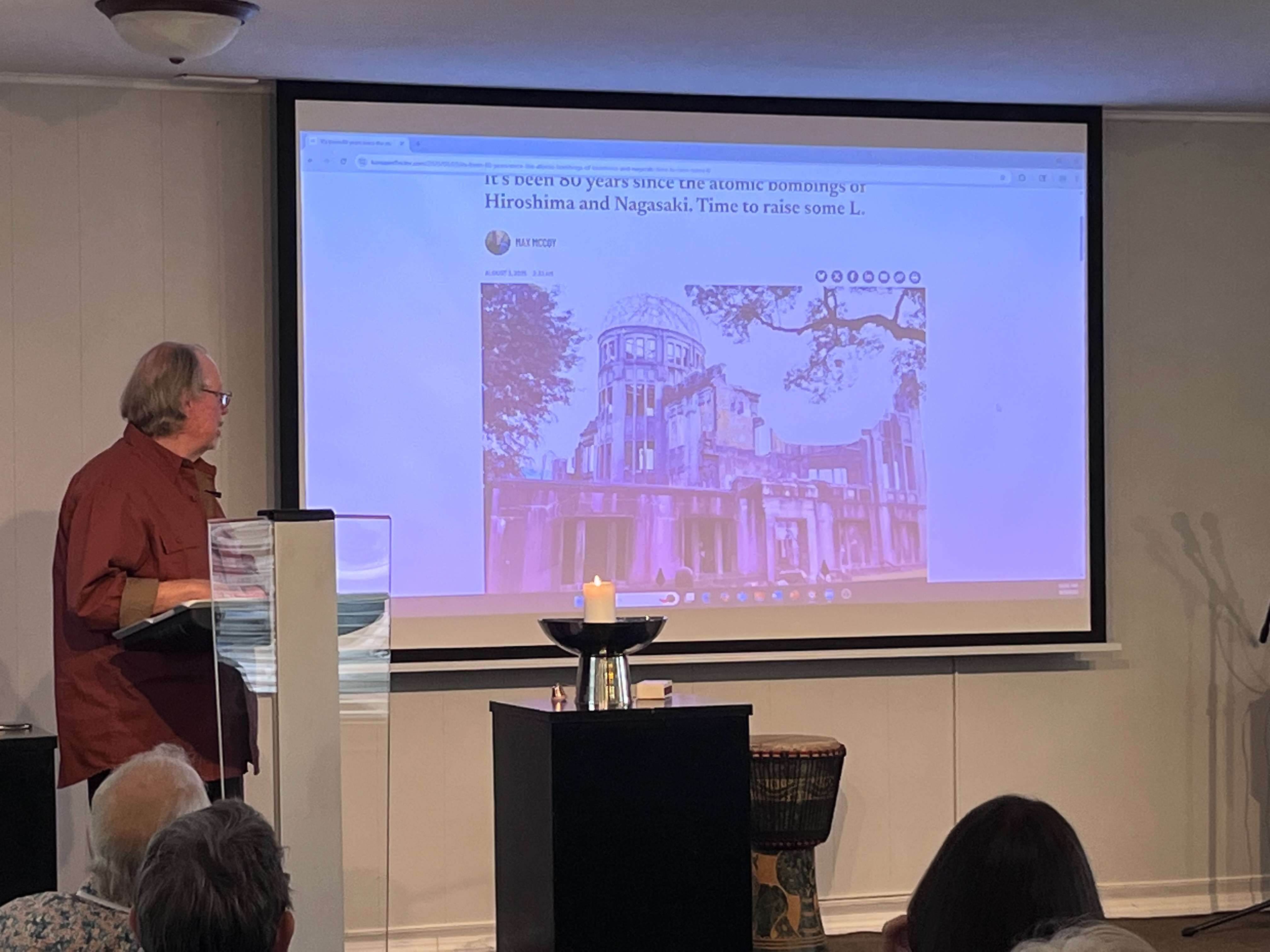
By: NICOLAS FIERRO
Salina Post
A well renowned award winning Kansan columnist, author and journalist spoke about his recently published Kansas Reflector column at a Salina church, about the atomic bombings of Hiroshima and Nagasaki that happened on Monday, August 6, 1945.
Max McCoy originally from Baxter Springs, on Sunday spoke at the Unitarian Universalist Fellowship Church about his in-person interview in Japan with a "Hibakusha" (word for Hiroshima and Nagasaki atomic bomb survivors) named Yoshito Matsushige in 1986, 41 years after the atomic bombings. Matsushige was a Hiroshima photographer who took photos the day of the atomic bombings. His photos were later used on Life Magazine in 1952, but it was not until McCoy's article from the Pittsburg (KS) Morning Sun about Matsushige and other survivor's perspective of the atomic bombings, that Matsushige's photos gained worldwide attention.
McCoy arrived to Japan in 1986 as a journalist for the Pittsburg Morning Sun, after he was encouraged to apply for a travel grant program. His editors of the Pittsburg Morning Sun agreed to sponsor him and he was then selected as one of two American journalists sent to Japan that same year.
McCoy was given the opportunity to choose who to interview about the aftermath of the atomic bombings, and Matsushige was at the top of his list.
"I wanted to walk with him from his house, to where he took the famous photographs and I ended up interviewing about 100 other atomic bomb survivors at that time," said McCoy.

Emotionally affected
After McCoy's experience in Japan, he stated that he was affected 'emotionally.' He commented that he encountered having nightmares that he was in a 'nuclear hellscape, trying to find his children.'
Most of the people McCoy interviewed in Japan were 'defensive' when talking to someone from the US about the atomic bombings. They frequently asked him why he was doing the story and wanting interviews. His response was showing them pictures of his children.
"When they would ask me why I was doing it, I showed them pictures of my children from my wallet and told them this is why I am doing it," he said.
His viewpoint afterwards reinforced to him how important telling personal narratives were. McCoy studied and read many books regarding the events of the atomic bombings before his trip.
"The power is in the narrative of what the people went through, that is the power to shape minds and change hearts," McCoy shared.

Anti-nuclear
On June 7, 2017 the United Nations (UN) passed the Treaty on the Prohibition of Nuclear Weapons (TPNW), which prohibits the development, testing, production, manufacturing, acquisition and possession of nuclear weapons and nuclear explosives. 122 nations adopted the treaty and 70 countries have signed the treaty since it was opened for signature on September 20, 2017. The US was not of the one countries who signed the treaty, but rather boycotted the vote.
Japan is currently under US protection through extended nuclear deterrence (aka, 'nuclear umbrella').
However, McCoy commented that he is 'anti-nuclear.'
He stated that we are living in an era where we are 'quickly re-arming' in terms of nuclear weapon modernization. He continued to emphasize the growth of countries becoming pro-nuclear, as he thinks there will be a 'nuclear exchange' at some point.
"The odds are increasing that at some point, we will have a nuclear exchange," said McCoy. "People look at the reduction of 70,000 warheads in '86 down to 12,000 now and that is positive, but we are also gearing up now to increase our capacity and I think we are going to see those numbers climbing back up. For many decades there was an idea that nuclear war was unthinkable. Increasingly I am seeing the idea that maybe there could be a nuclear exchange without involving a global conflict, but I do not think that is realistic."
He added that he personally feels 'disheartened and disappointed,' and that he wishes more people would know the history of Hiroshima and Nagasaki, plus the 'reality of the increase of nuclear weapons.'
"Hell is real and we have had it here on earth in Hiroshima and Nagasaki," he commented. "The horror was unimaginable and it is important to be mindful of what your leaders are doing on your behalf. I think people have a sense of powerlessness to change the world, but I would say that people can change the world."
Encouraging the audience
McCoy ended his speech by encouraging the audience at the church to take a photo on Tuesday and think for themselves, "what if this is the last photo I was to take." He called it the "last photo" and told the audience to be mindful of every photo they take, which could be their last.
"Let's make our photos and actions count, keep praying for peace, but for God's sake, let's act," said McCoy.
McCoy recently just won the first-place National Society of Newspaper Columnists award in the "general interest (online)" category. He previously won first-place in 2021 for humor and second-place for general interest in 2023.
He currently writes for the Kansas Reflector as a Sunday columnist and writes nonfiction and fictional books.
Link to McCoy's column: "It's been 80 years since the atomic bombings of Hiroshima and Nagasaki. Time to raise some L."





